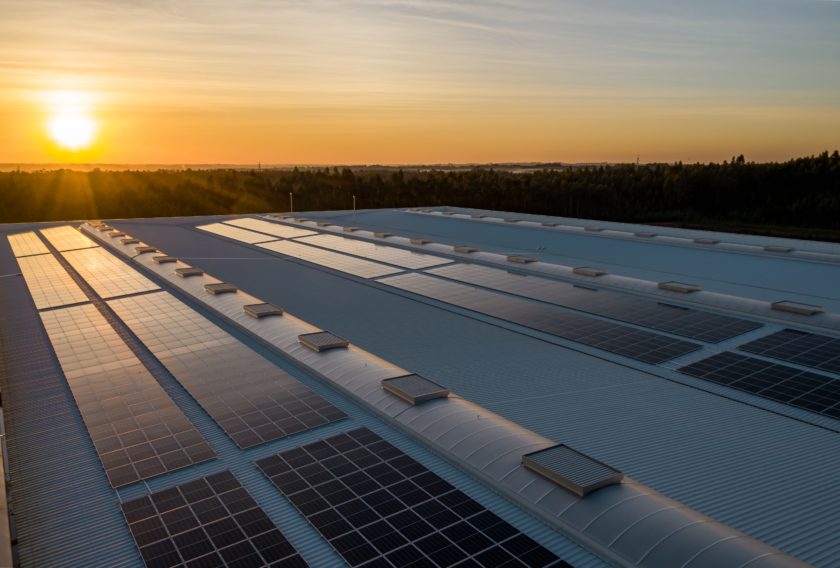Will explores the distinctive features that help to set this fund apart from its peers, and provides insights into the resilience of renewable energy assets through varying economic cycles. We also discuss the compelling valuations in the market today and the fund’s role in delivering a regular income for investors.
Why you should listen to the interview: This is an interesting fund with a clear focus on delivering a regular, reliable income stream via infrastructure relating to the energy transition. Despite the fund being impacted by both interest rate and battery storage firm challenges, Will is optimistic about the sector and explains why he expects the wind to turn in his favour this year.
This interview was recorded on 27 February 2024. Please note, answers are edited and condensed for clarity. To gain a fuller understanding and clearer context, tune in to the full episode of the ‘Investing on the go’ podcast – see below.
What to look out for in this interview:
Resilient cash-flows, regardless of economic cycle
“At the asset level, these are companies that have very highly contracted cash flows. The companies that we own are selling the power they produce on a highly contracted basis, underpinned by very long-term contracts with high quality off-takers, whether those are utilities or other high quality corporates.
“In addition, the electricity that’s produced is also a critical service so, regardless of the stage in the economic cycle, at an asset level, we’d expect the assets to continue generating the power, to continue generating cash flows and those very resilient income streams.
“At a trust and company level, the ratings that are ascribed to both trusts and companies are subject to market sentiment which does oscillate through market cycles. I think from where we are at the moment, if we are looking to relatively flat, economic growth – certainly at home in the UK where we’re in a technical recession – if that leads to rate cuts as we expect and lower longer-term yields, I think that would provide a tailwind for ratings. I would also suggest that if you are in a period of relatively weak economic activity, the relative security and resilience of the cash flows that these companies generate may come back to the fore, as we’ve seen in the past.”
Discounts in battery storage
“In terms of the ratings of battery storage companies ie. share prices versus the latest asset valuations, the battery storage names are trading at very deep discounts. There has certainly been a reaction to the deterioration in revenues recently which has surprised the market. Things have derated quite significantly, and just recently, we were actually looking at companies in this space trading below replacement cost for their assets.
“But let’s not forget that battery storage has a key role to play in the future of the electricity grid in the UK and more broadly. We do understand why they’ve derated recently but I think it’s probably overdone, and we have started to see a bit of a move off the lows.”
A more compelling opportunity set ahead?
“On the point of decreasing power prices, I think it’s important to understand that a large element of expected revenues are contracted and there are a mix of subsidies that underpin an element of revenues. You’ve got fixed power price sales — long-term power purchase agreements that give you great visibility around pricing, or more shorter-term hedges which lock in visibility on revenues — and then you may have some market exposure, such as wholesale electricity price exposure.
“Power prices have gone up in recent years, largely driven by the conflict in Ukraine, but the energy market was tight going into that anyway, but this spike in prices is starting to alleviate considerably now. Just like companies didn’t benefit on a one-for-one basis as prices went higher because of their hedging, forward sales, for example, they’re not coming back on a one-for-one basis either as these power prices fall.
“The other thing to note on power prices is that a lot of the volatility in prices that we are seeing is at the nearer end, so prices have spiked on a one to three year view, and are now coming lower. The very long-term power price curve that a lot of these companies incorporate into their valuations has actually been relatively stable and it’s really near years where you’ve seen this big volatility in power prices. And asset valuations or cash flows don’t move one-for-one with those near-term movements. Some companies have benefitted significantly from recent high higher prices and it’s improved their profitability and those are the companies that have had greater exposure to spot prices.
“When we think about how power pricing influences the opportunities available, for me, I think it may influence views on exposures. For example, having a bigger exposure to companies that maybe have more spot exposure in recent years has been beneficial. As power prices are coming down, perhaps you might have a more constructive view of companies that have hedged into that higher environment and are therefore perhaps less exposed as these prices have come down.”
Generating a reliable regular income
“The companies we own are producing renewable energy, and these are sold to off-takers like utilities and other corporate entities, for example, on very long-term contracts. Many of these companies will also benefit from receiving subsidy payments for the power they produce, further supporting those revenue streams. Companies return a lot of a large element of those cashflows to investors – such as ourselves – via dividends and that’s really what we are focused on, these companies that are providing a critical service. And that’s how that income stream comes through and it is quite dependable.”
Conclusion:
The VT Gravis Clean Energy Income fund taps into the expertise of the Gravis group to create a portfolio of renewable energy and energy-efficiency related projects that are benefiting from the secular move to more sustainable energy demands. Will outlines a wide range of opportunities within his asset class and gives listeners clean insights into how the fund can add diversification in a wider portfolio.
































